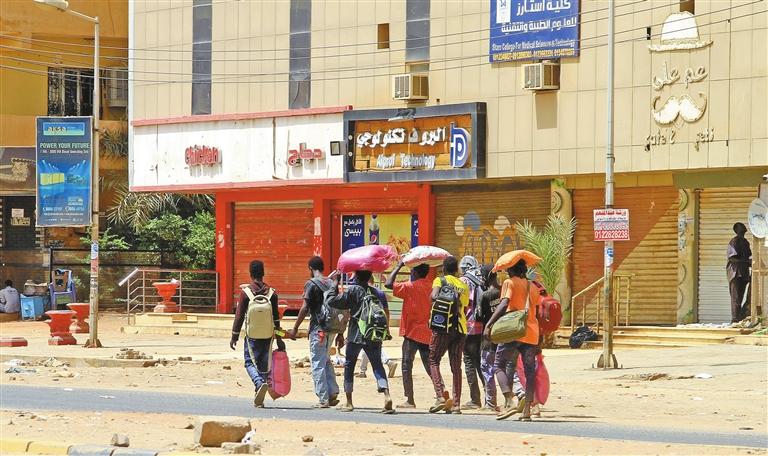
ON Sunday, Sudan’s representative to the Arab League (AL) stated that efforts are underway to determine the cause of the ongoing military clashes in the country. The league convened an emergency meeting in Cairo to discuss the conflict, which has claimed the lives of at least 83 people. The meeting was called for by Egypt and Saudi Arabia following days of tension over the integration of the paramilitary Rapid Support Forces (RSF) into the army. On Saturday, clashes broke out between the RSF and the Sudanese Armed Forces. Speaking to reporters, Al-Sadiq Omar Abdullah emphasized that the RSF and Sudan’s armed forces were partners during Sudan’s political transition process. “We will figure out exactly what the cause of this conflict is, and perhaps after that, the issue can be resolved,” Abdullah said. Since April 13, at least 83 people have been killed and 1,126 others wounded across several regions, including Khartoum, South Kordofan, North Darfur and Northern State. The heaviest fighting is taking place in Khartoum City, the capital of Sudan, according to the World Health Organization. During the AL meeting, Abdullah referred to the RSF as “rebels” and alleged that they initiated the fighting Saturday morning. He added that the Sudanese army had successfully repelled the RSF attacks and regained control of the situation. Abdullah called on Arab states to mediate a peaceful settlement in Sudan “away from international interventions.” In a statement released after the meeting, the permanent representatives of the AL council stressed the importance of an “immediate ceasefire of all armed clashes” to protect civilians and Sudan’s territorial integrity and sovereignty. Other Arab delegates urged the parties involved in the conflict to seek a peaceful resolution and avoid violent escalation. China also called for an end to the fighting and urged the conflicting parties to increase dialogue and move forward with the political transition process to prevent tensions from escalating further. Sudan has been under transitional government since former President Omar al-Bashir was ousted in a popular revolution in 2019. Tensions between military and civilian groups have characterized much of the post-al-Bashir period, leading to another military takeover in October 2021 that removed the civilian leader from power-sharing government and left a political vacuum to be filled. The growing size of the RSF has been a cause of concern for the military leadership, who along with civilian representatives have called for the group’s integration into the regular armed forces. Zhang Yongpeng, a research fellow at the Institute of West Asian and African Studies of Chinese Academy of Social Sciences, noted that while the immediate reason for the conflict might be a power struggle, it is rooted in a complex history that also involves the issue of the Darfur region. He warned of the possibility of civil war and suggested that external players like the United Nations could play a role in resolving the issue, but he cautioned against external interference. (CGTN) | 
